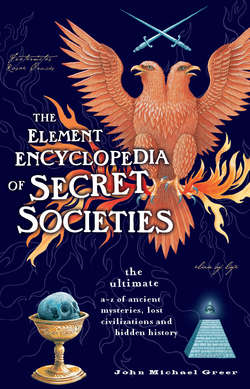Читать книгу The Element Encyclopedia of Secret Societies: The Ultimate A–Z of Ancient Mysteries, Lost Civilizations and Forgotten Wisdom - John Greer Michael - Страница 10
AFRICAN SECRET SOCIETIES
ОглавлениеLike other traditional societies around the world, the cultures of sub-Saharan Africa possess a rich and varied body of secret society traditions, many of which still exist today. The sheer diversity of the hundreds of distinct African cultures makes generalizations about African secret societies risky at best, and continuing prejudices and misunderstandings on the part of people in the industrial world cloud the picture further. It is just as inaccurate to think of all African secret societies in terms of masked “witch doctors” and fire-lit dances, as it is to think of all Africans as tribal peoples living in grass huts.
In reality, just as traditional African societies include everything from tribal hunter-gatherer bands to highly refined, literate, urban cultures, African secret societies include initiatory traditions that focus on the education and ritual transformation of children to adults; craft societies governing trades such as black-smithing and hunting; religious and magical societies that teach secret methods of relating to supernatural powers; secret societies of tribal elders or leading citizens that play important roles in the government of many African communities; and many other forms of secret society as well. While most African secret societies are specific to particular cultures or nations, a few, such as the Poro and Sande societies of West Africa, have spread across cultural and national boundaries. See Poro Society; Sande Society.
During the four centuries of European colonialism in Africa, African secret societies faced severe challenges from the cultural disruptions caused by the slave trade and colonial incursions, from the efforts of Christian and Muslim missionaries, and from colonial governments that often identified secret societies as a potential threat to their rule. During this time, African slaves deported to the New World brought several secret societies with them, and they and their descendants created new secret societies of their own, influencing the development of fraternal secret societies in America and elsewhere. Nor did this process of exchange go in only one direction; several secret societies of European origin, including Freemasonry and the Loyal Orange Order, established themselves in the nineteenth century among European-educated Africans and remain active, especially in the large cities of West Africa. See African-American secret societies; Freemasonry; Loyal Orange Order.
Today many traditional African secret societies survive in a more or less complete form, and the twilight of western colonialism enabled some to reclaim the roles they once had in their own cultures. Thus the Mau Mau society, derived from older oath-bound societies in Kenya, played an important role in freeing that country from colonial rule, while the Poro Society in Sierra Leone was able to impose and enforce a “Poro curfew” during the Sierra Leone civil war of the 1990s that protected local communities from the attacks both of rebels and government soldiers. African-descended communities in the New World have also preserved a number of African secret society traditions, and these have become more popular with the decline of Christian control over governments and the spread of religious freedom. See Mau Mau.
Further reading: Mackenzie 1967.
